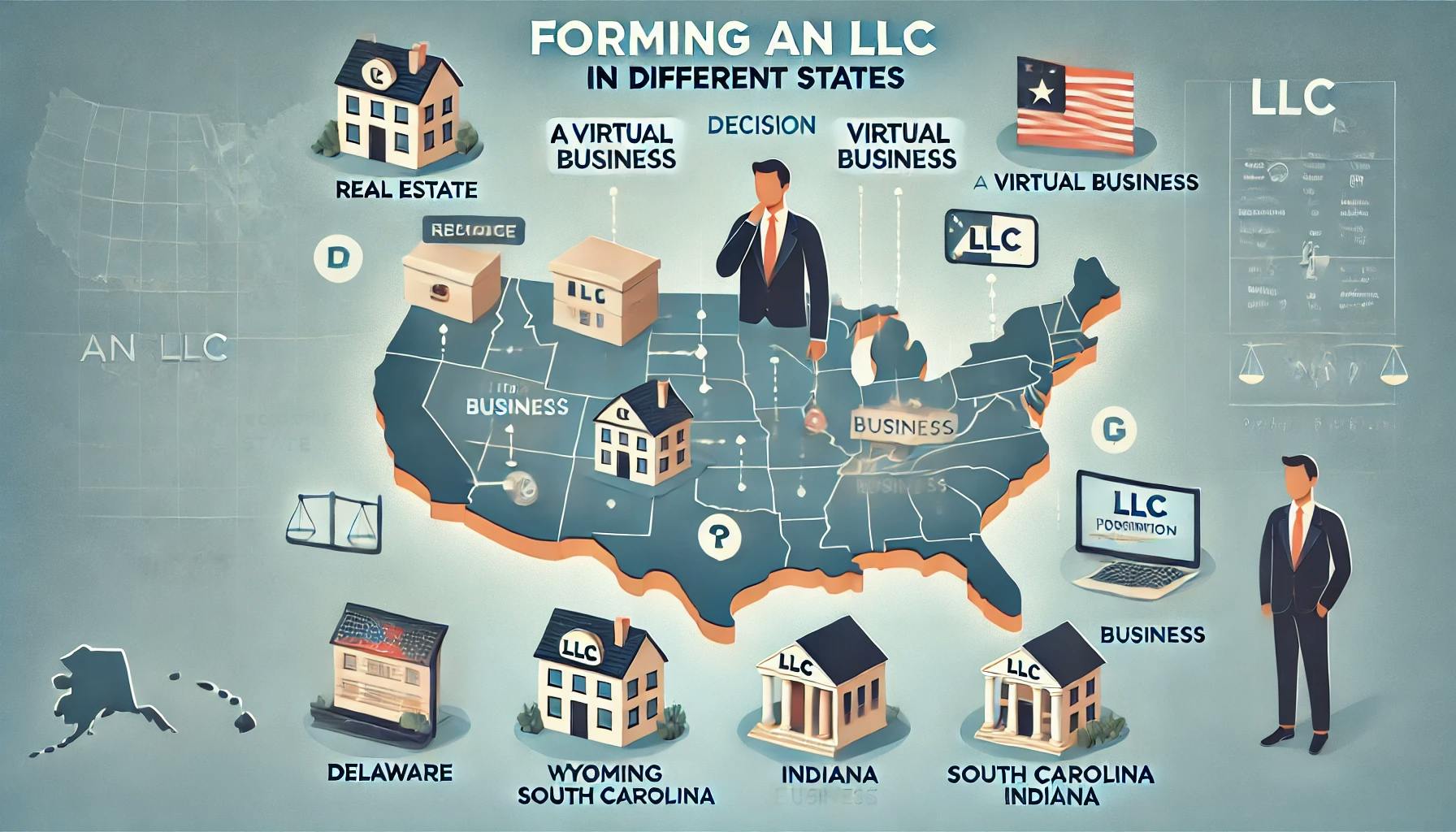Monday, June 3, 2024
Starting a business involves deciding where to form your LLC, and you can choose a different state from where you reside. Popular states like Delaware, Wyoming, New Mexico, and Nevada offer business-friendly laws and tax benefits


Mariana Torres
Legal Consultant
As you consider forming a Limited Liability Company (LLC), you might wonder: "Can I form my LLC in a different state?" This comprehensive guide will answer that question and delve deep into the intricacies of LLC formation, including the pros and cons of registering in a state other than your own. We'll pay special attention to considerations for California residents, as they face unique challenges when it comes to LLC formation.
The simple answer is yes, absolutely. This practice, known as "foreign LLC formation," is not only possible but also quite common. In fact, many well-known companies, including tech giants like Google and Facebook, are not registered in their home states. Instead, they opt to form LLCs (or corporations, depending on their size and needs) in states where tax codes are more lenient and corporate law is more developed.
However, it's crucial to understand that forming an LLC in another state doesn't necessarily provide the benefits you might expect, especially if you're a California resident.
One common misconception is that forming an LLC in another state will help reduce your taxes. For California residents, this isn't true. As a California resident, all income you make from your business will be reported on your state tax return, regardless of where your LLC is formed.
While your LLC would be governed by the laws of the state where it's formed, any business conducted in California will still be subject to California's laws. This means you can't completely escape California's regulations by forming your LLC elsewhere.
If you're based in California but choose to file your LLC in another state, you'll need to register it as a foreign entity in California if you conduct most of your business there. This leads to:
These requirements can significantly increase the complexity and cost of maintaining your LLC.
Despite the challenges, there are situations where forming an LLC in another state might be beneficial:
California is known for being one of the least LLC-friendly states in the country. Some challenges include:
However, these factors alone don't necessarily justify forming your LLC in another state if you're a California resident.
Given the complexities involved, how should you decide where to register your LLC? Here are some guidelines to consider:
While forming an LLC in a different state can offer advantages for some businesses, particularly larger ones or those in specific industries, for many small, local operations in California, the complications and additional costs often outweigh the potential benefits.
The decision of where to register your LLC should be based on a careful consideration of your business's size, industry, growth plans, and specific needs. For most small businesses in California, registering in-state will likely be the most practical and cost-effective option.
Remember, while the structure and location of your LLC are important, they're just part of the equation. Focus on building a strong business model, providing value to your customers, and managing your operations effectively. These factors, more than the state of formation, will ultimately determine your business's success.
As you contemplate the best structure and location for your LLC, keep in mind that business laws and regulations can change. Stay informed about developments in business law, both in your home state and in popular LLC formation states.
Lastly, while this guide provides a comprehensive overview, it's always recommended to seek personalized advice from legal and financial professionals. They can offer guidance tailored to your specific business needs and help you navigate the complexities of LLC formation and management.
We handle everything: formation, registered agent, EIN, and compliance filings. No hidden fees.
Start Your Business